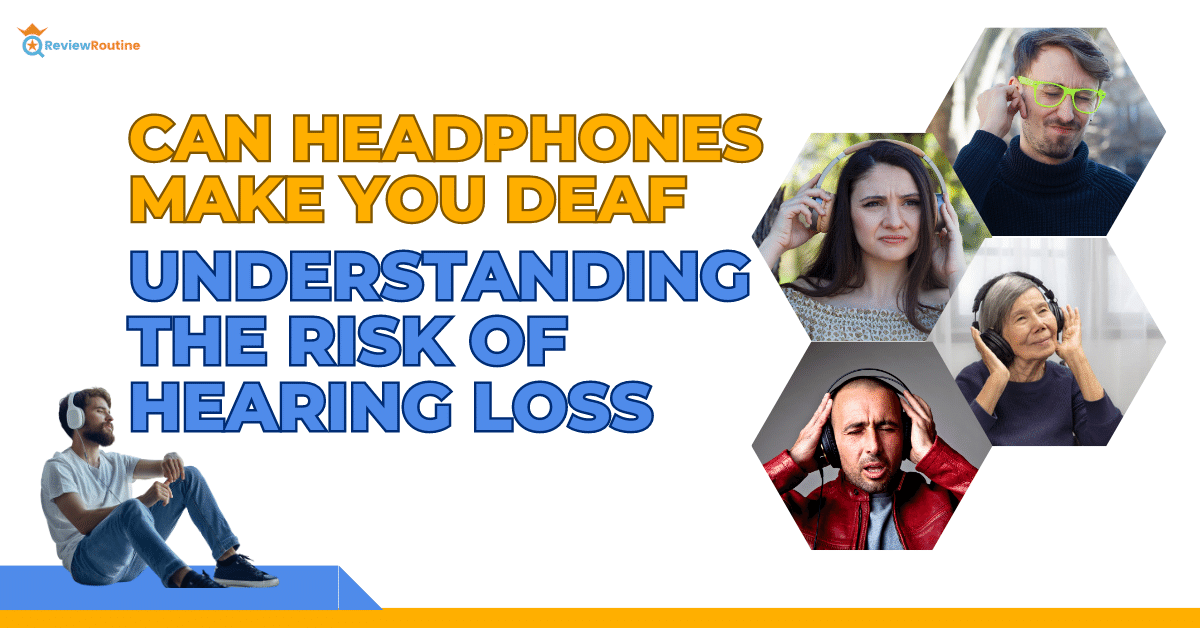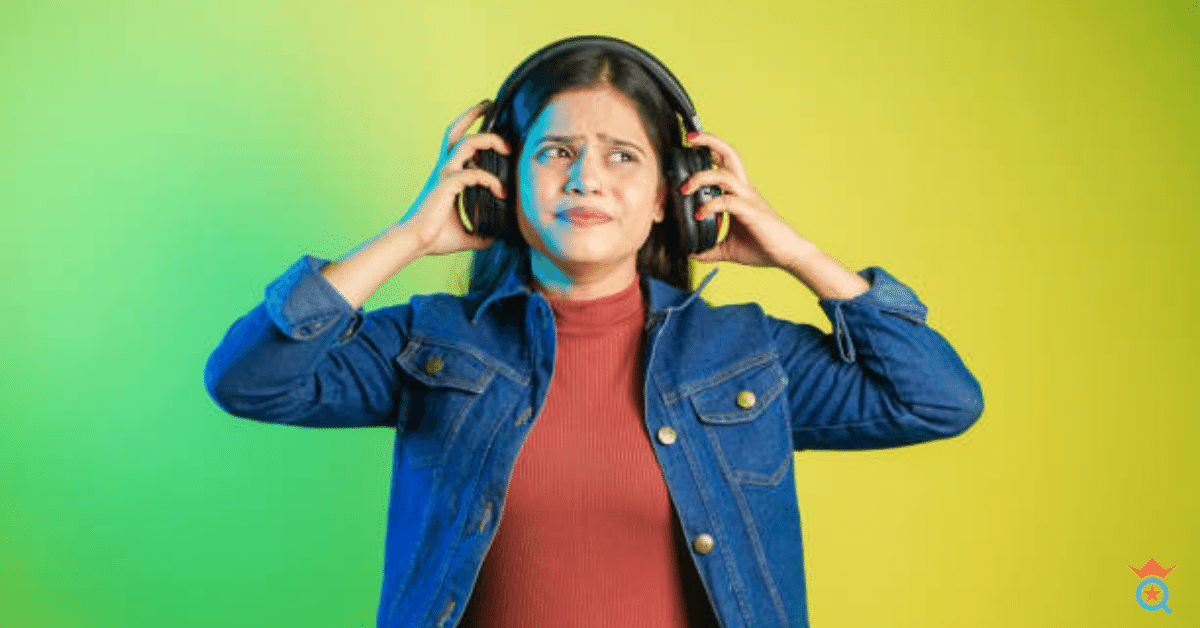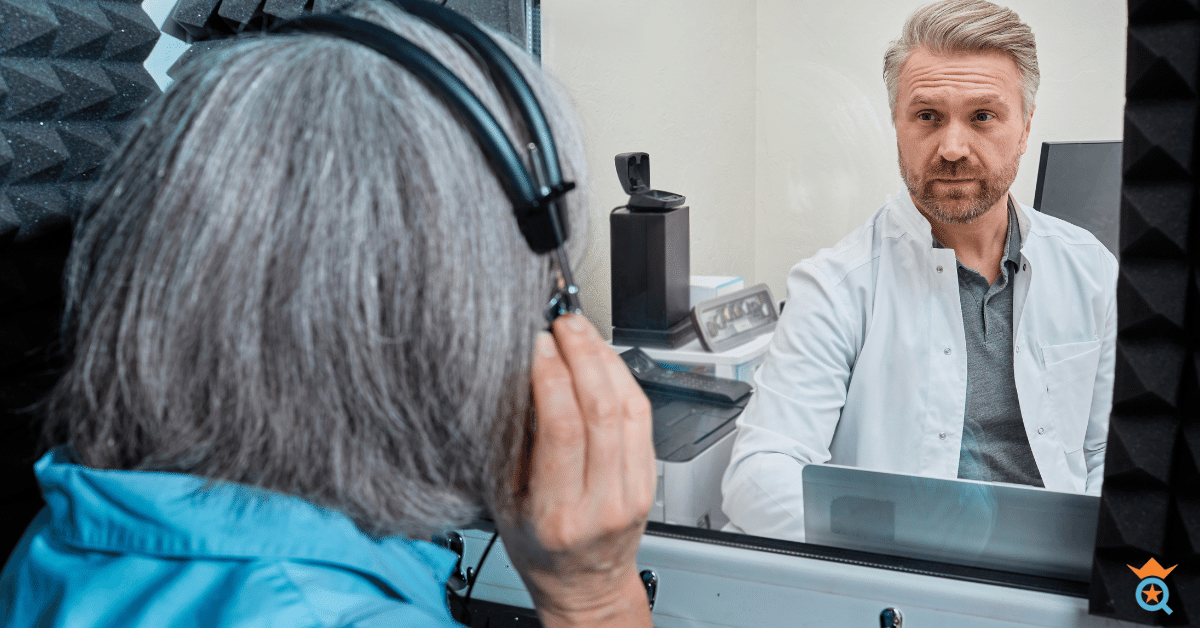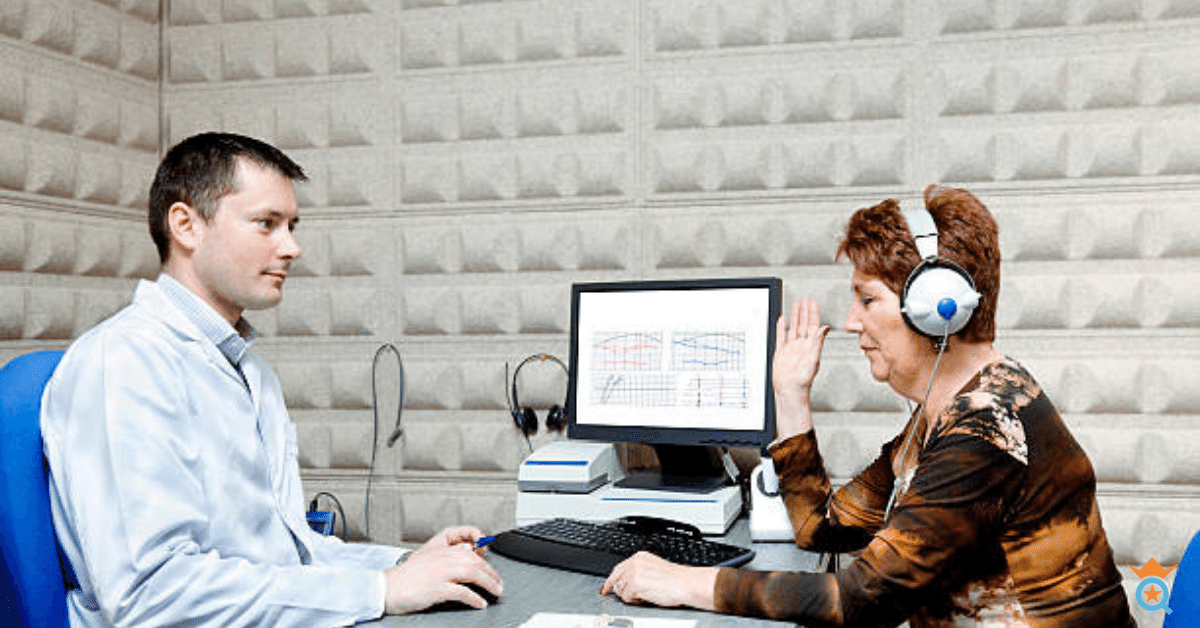Headphones have become an essential part of our daily life in our current era of music streaming and continual connectivity. However, there is rising concern about the possible harm to our hearing that they may do. This article delves into the topic of whether headphones can make you deaf, exploring the concept of noise-induced hearing loss, warning signs to watch out for, and practical measures to prevent hearing damage.

Understanding Noise-Induced Hearing Loss
The most prevalent sensorineural hearing loss is noise-induced. Recent surveys show that 80% of 13–18-year-olds listen to music with headphones for 1–3 hours daily.
Continuous exposure to deafening noise can damage the auditory nerve and hair cells of the cochlea, also known as the inner ear.
According to a comprehensive 2021 study, approximately 1.7% of people worldwide suffer from noise-induced hearing loss.
Alarming data from the study also indicates that individuals who use headphones in already noisy environments face a 4.5-fold higher risk of hearing loss.

Recognizing the Warning Signs
It is essential to be aware of the warning signs that may indicate hearing loss. These signs include:
- Hearing muffled sounds
- Difficulty understanding conversations in noisy places
- Struggling to hear high-pitched sounds
- Challenges in comprehending speech consonants
- Persistent ringing or buzzing in the ears
- Frequently asking others to repeat themselves or speak louder
- Hypersensitivity to certain sounds
If you experience any of these symptoms, it is crucial to consult a doctor and potentially seek a referral to a hearing specialist for further evaluation.

Diagnosing Hearing Issues
Diagnosing hearing loss is a relatively simple and painless process. Otoscopy is a medical exam of the ear's structures. This examination involves inspecting the external auditory canal, the tympanic membrane (eardrum), and the middle ear, which connects external sound waves to the inner ear for auditory transduction.
To determine the extent of hearing loss, several tests may be conducted, including:
Tuning fork test: This assesses a person's ability to perceive different sound frequencies at varying distances.
Audiometer test: In this test, a person wears earphones that deliver sounds at controlled volumes and tones. They indicate when they can no longer hear a sound, allowing the audiologist to assess hearing thresholds.
Bone oscillator test: This test examines the function of the auditory nerve and identifies the type of hearing loss a person may have by placing an oscillator against the bone near the ear.
Early detection of hearing loss is crucial for prompt intervention and minimizing the impact on one's quality of life.

Treating Hearing Loss
Various treatment options exist to improve a person's hearing ability, depending on the nature and severity of the hearing loss. These include:
Hearing aids: These devices amplify sound to compensate for hearing loss.
Middle ear implants: Surgically implanted devices that enhance sound transmission in the middle ear.
Cochlear implants: Suitable for individuals with severe hearing loss or deafness, these devices directly stimulate the auditory nerve to restore hearing.
Lip reading and sign language: Non-invasive methods that facilitate communication for individuals with significant hearing loss.
A consultation with a hearing specialist will help determine the most appropriate treatment plan for noise-induced hearing loss.

Preventing Hearing Loss with Headphones
Prevention is key when it comes to safeguarding our hearing. Reduce headphone-related hearing loss with these tips:
- Limit the volume: Keep the volume below the recommended sound exposure level of 85 decibels (dBA). Lowering the volume can significantly reduce the risk of hearing damage.
- Use noise-canceling headphones: These headphones shut out outside noise, allowing you to listen to music at lower volumes.
- Choose over-the-ear headphones: Choose them over earbuds or in-ear headphones because they provide better sound isolation and lower the risk of hearing damage.
- Reduce listening time: Take regular breaks from headphone use to give your ears a rest and prevent overexposure to loud noise.
- Regular checkups: Schedule routine checkups with a healthcare professional who can monitor your ear health and detect any early signs of hearing problems.
It is important to remember that these preventive measures should extend beyond headphone use. Lower volume levels on televisions and smartphones and use ear protection in loud environments or at events to preserve your hearing.

Final Words
While headphones have revolutionized our music listening experience, they do come with potential risks. Noise-induced hearing loss is a serious concern, but by understanding the risks and taking proactive measures to protect our hearing, we can continue to enjoy music without compromising our auditory health.
Stay mindful of the warning signs, seek professional assistance when needed, and embrace safe listening habits to preserve your precious sense of hearing for years to come.
Frequently Ask Questions
Is it possible to go deaf with headphones?
Yes, it is possible to experience hearing loss from prolonged and excessive headphone use. Listening to loud sounds at high volumes for extended periods can damage the delicate auditory system, including the auditory nerve and tiny hairs in the inner ear responsible for transmitting sound signals to the brain.
Can AirPods cause hearing loss?
Any type of headphones, including AirPods, can contribute to hearing loss if used at high volumes for extended periods. It is essential to follow safe listening practices and adhere to volume limits to prevent potential hearing damage.
Can you reverse hearing loss?
Infection- or medication-related hearing loss can be reversed with urgent medical treatment, but most permanent hearing loss cannot. However, various treatment options, such as hearing aids or cochlear implants, can help improve hearing and enhance communication abilities.
Is it bad to use earphones every day?
Using earbuds on a daily basis, especially at high volume levels, can raise the risk of hearing impairment over time. To protect your hearing, it is advisable to limit your headphone use, follow volume guidelines, and take regular breaks to allow your ears to recover.
What are the recommended volume limits for headphone use?
Sound exposure should not exceed 85 dBA for eight hours a day, according to NIOSH. Lowering the loudness can assist to lessen the chance of hearing loss.








